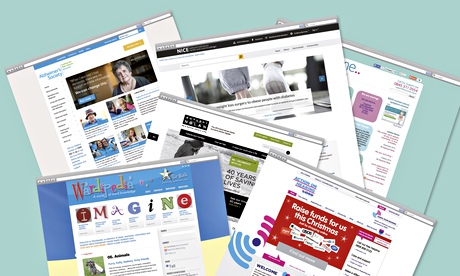
Picture the moment. It is 3am and you have a really bad stomach ache. You are scared and in pain. “Time for Drs Google, Yahoo or Bing,” you think, typing your symptoms in to your favourite search engine. In England alone, there are 50,000 organisations offering web-based help in health and social care. They range from the evidence-laden to the random, the sensible to the crazed, and the helpful to the hysterical.
So how to make sense of it all? Nearly all of us – 87% in both the UK and the US – use the internet, and searching for health information is one of the most popular activities. More than 80% of internet users seek health information or advice. The information is plentiful and free: only 2% of those seeking health information online in the US, for example, pay for it. But we are obviously wary – or perhaps healthily sceptical – of what we read online. A US survey by the Pew Research Center showed that the vast majority of people still ultimately rely on a doctor or healthcare professional for medical advice, 60% also ask relatives and friends and nearly a quarter ask people with the same condition.
But what if it is that 3am scare, and everyone is asleep? Which websites can you trust, and how can you tell? A range of healthcare experts share their tips and recommendations:
The neuroscientist
Barbara Sahakian, professor of clinical neuropsychology at the University of Cambridge, says she generally recommends experts rather than individual websites. However, she singles out the National Institute for Health and Care Excellence (nice.org.uk) for general health information, the US National Institutes of Health (nih.gov) for excellent advice on mental health, alcohol and substance abuse and addiction, and the Alzheimer’s Society website (alzheimers.org.uk) for reliable information and support on dementia.
The mental health campaigner
Marion Janner, campaigner and founder of Star Wards, one of this year’s Guardian/ Observer Christmas appeal charities, recommends her organisation’s site, wardipedia.org, to anyone seeking information on mental healthcare. “It’s an online compendium of great practice on mental health wards, with over 1,000 examples of imaginative, therapeutic care contributed by staff and patients, along with the evidence base.”
The audiologist
Louise Hart, audiologist at the charity Action on Hearing Loss, recommends its website (actiononhearingloss.org.uk) for information on ringing in the ears or on hearing loss. More generally, she says, look out for Information Standard certification, which is the quality mark awarded by NHS England. Organisations with the quality mark have been filtered to ensure they pass rigorous standards. To gain certification, material has to be “accurate, accessible, impartial, balanced, evidence-based and well written”. Sites without a quality mark may still be good, but it is hard to judge. The main challenge is to work out which sites have validated and updated information, and the quality mark is currently the best available indicator for UK users.
The therapist
Sharon Schamroth, a psychodynamic therapist, says she finds reliable and practical information in dealing with cancer at cancerresearchuk.org and macmillan.org.uk. For mental health problems and finding the right practitioner for therapy and counselling, she points people to itsgoodtotalk.org.uk. Some sites, she says, may have good information, but have areas that are not relevant to UK users – such as the US based niaaa.nih.gov, which includes useful advice about alcohol dependence, but has details of US support groups and policy statements.
The GP
Carmel Mond, a London GP, suggests NHS Choices for simple, sensible advice and patient.co.uk for those who want more detail. All the experts warn that unfiltered use of the internet can cause panic and confusion. “Unmoderated chat sites make it impossible to separate the useful from the downright mad,” warns Mond.
The academic
Ian Jacobs is professor and vice president of the Faculty of Medical and Human Sciences at the University of Manchester, and a gynaecological oncologist who has campaigned to raise awareness and funding for women’s cancers. He was director of the UK trial into ovarian cancer screening which involved 200,000 women. He recommends eveappeal.org.uk for information about gynaecological cancers and ovacome.org.uk for information about ovarian cancer.
The digital marketing manager
Sam Butler, digital marketing manager at the Anthony Nolan charity, says healthtalk.org shares real-life stories of people living with different conditions, including blood cancers. “If you’re living with a health problem, it can be useful and reassuring to hear stories from others going through the same things – what the day to day reality is, as well as how other people have coped and looked after themselves,” he says.
Many websites, even responsible ones such as mumsnet.com, present a mix of fact and opinion that is hard to disentangle. And since most health content is available free of charge, all these sites must be funded somehow. Some have very obvious and intrusive advertising, which can be offputting but does enable you to see where the money is coming from. Find the funders, and you will uncover the bias. Pharmaceutical companies fund a lot of health information sites and have products to sell. So Pfizer’s leaflet on erectile dysfunction is excellent and doesn’t mention any particular drug – but it is interesting to know Pfizer makes Viagra. So given a choice, you might feel happier reading about the same subject on NHS Choices.
So surfer beware: look for a quality mark, check the content has been updated recently, make sure it is relevant to where you live and, if in doubt, ask a human being – preferably a medically trained one. Especially if the belly ache is still there in the morning.







